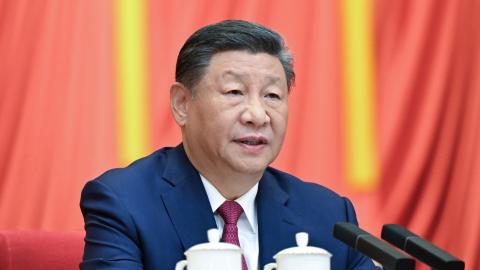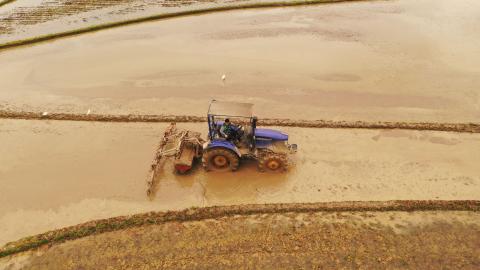Home to 20 percent of the global population, but only 7 to 9 percent of the world’s arable land, China is an extreme food shortage. To combat the crisis, the Chinese Communist Party (CCP) devised a decades-long strategy of purchasing millions of acres of American farmland, livestock, seeds and food supply lines from the United States.
In fact, in ten years, Chinese ownership of U.S. farmland has jumped from $81M in 2010 to $1.8B in 2020. It doesn’t take a top-secret security clearance to imagine the dangerous economic and national security implications of China maintaining undue leverage over U.S. food supply. Although food security isn’t always at the top of defense and national security conversations, it should be.
In the coming days, members of Congress will reintroduce the Promoting Agriculture Safeguards and Security (PASS) Act. The legislation bans China, Russia, Iran, and North Korea from investing in or acquiring any land or business involved in American agriculture. It also adds the Secretary of Agriculture as a standing member of the Committee on Foreign Investment in the United States (CFIUS) – which reviews transactions involving foreign investment in the U.S.
The PASS Act corrects a major vulnerability in American food security: there are currently no legal restrictions on foreign investments in U.S. agricultural land. Both Republican and Democrat members of Congress ought not hesitate to pass this much-needed legislation to keep our food supply free of foreign control. After all, if Congress does not act—China will.
Every year, China mounts a new challenge to American food security. In 2013, with the CCP’s backing, Chinese company WH Group acquired Smithfield Foods – the largest pork producer in the United States. The acquisition marked China’s largest purchase of a U.S. asset to date at $4.7 billion. The acquisition included 146,000 acres of American farmland throughout North Carolina, Missouri, Utah, Virginia, Colorado, and Oklahoma. In one transaction, and with little pushback, the Chinese government gained significant leverage over American food supply infrastructure.
In Texas, one Chinese billionaire—with close ties to the CCP—bought over 140,000 acres of land. In fact, in 2020, he purchased a 15,000-acre parcel of land in Val Verde County which is also home to Laughlin Air Force Base. With no interference from the American government, the Chinese bought land directly next to our premier training ground for military pilots. While the purchase caused a stir from then-Rep. Hurd who represents the district, existing law allowed the transaction.
A year later, another Chinese company—Fufeng Group—with strong ties to the CCP bought land in Grand Forks, North Dakota for its new wet corn mill. Of course, the plot of land is located just 12 miles from Grand Forks Air Force Base—which houses some of the United States’ top intelligence, surveillance, and reconnaissance assets. As one government report noted, "the location of the land close to the base is particularly convenient for monitoring air traffic flows in and out of the base, among other security-related concerns."
The American people deserve a government that at least stops our enemies from buying our arable land—especially when such land is in close proximity to military facilities—and controlling our food supply. The flagrant disregard for serious national security concerns marks a betrayal of trust between the government and the people it is intended to serve. Congress must pass the PASS Act and prevent a national security crisis before it’s too late.
To be clear, it’s not just Congress that has a role to play. We also need a Commander-in-Chief who will make American food and farmland security a priority. CFIUS—composed of nine Biden-appointed cabinet-level officials—must ratchet up the intensity of its review process for foreign investments. If Chinese purchases of strategic farmland doesn’t warrant CFIUS’ intervention, it’s hard to imagine what does.
And finally, state governments need to step up too. While policymakers in Texas and North Dakota are already taking action, so many other states should follow suit. State legislatures must pass legislation to develop necessary safeguards against foreign acquisition of strategic farmland. With cooperation at all levels of government, we can secure our food supply for generations.
It doesn’t always take top-secret, clandestine intelligence operations to understand what our enemies are planning next. Sometimes, the threats are right under our nose. It’s about time our elected leaders started paying attention.













